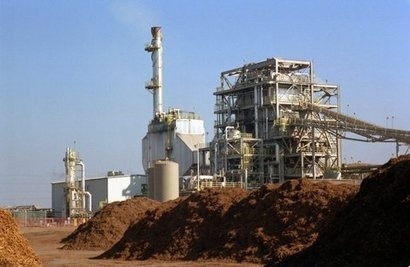
Phase II of the project will consist, in part, of 80 modern biomass heating plants, with 21 solar collectors, deployed in schools, kindergartens and community centres; 300 biomass boilers provided at subsidised prices to households and microenterprises and seven public-private partnerships to supply bioenergy. The project was launched this week at a public event at a school in Varnita village, Anenii Noi District, Moldova. The school is just one of the 144 institutions benefitting from the first phase of the project, conducted between 2011 and 2014.
“The Republic of Moldova is proving through the Energy and Biomass Project to be an eloquent example [demonstrating] that the targets set for energy efficiency and renewables are achievable” said Stephane Christophe Bride, Deputy Prime Minister, Minister of Economy. Consistency and effort – this is all that is needed. And the extension of the Project Agreement for Phase II, done thanks to the Development Partners’ contribution, will ensure the continuation of this endeavour in the following three years, so that the targets set by the Energy Strategy can be gradually achieved.”
The Energy and Biomass Project II will be implemented during January 2015 to November 2017 with a budget totalling 9.41 million euros provided by the European Union. It will continue the four interconnected activities conducted during Phase I, notably heating of public institutions with biomass energy, development of the Moldovan bio-energy sector, training and education and communication.
Pirkka Tapiola, Head of the EU Delegation to Moldova, added that the EU’s provision of assistance to the Republic of Moldova with regard to renewable energy sources shall permit, among other objectives, the limitation of environmental impacts from energy consumption and the diversification of energy sources. It will also help to consolidate the country’s biomass market and extend it to other regions throughout the country. The Energy and Biomass Project II will expand the boundaries of the project to cover the Transnistrian Region and small towns where heating plants are to be installed in public institutions. A number of these will be earmarked for Transnistria, ATU Gagauzia and Taraclia District where applications from rural settlements would be accepted as well.
The project will focus its activities on strengthening the development of the Moldovan bio-energy private sector via piloting public-private partnerships aimed at ensuring sustainable supply of biomass heat. It will also provide quality assurance of domestically produced biofuel and co-finance the first laboratory in Moldova to test biofuel quality from feedstock produced within the country. It will also assist with job creation, poverty reduction and environmental protection while helping to improve access to reliable and clean sources of energy thereby improving quality of life for Moldovan citizens.
For additional information:

